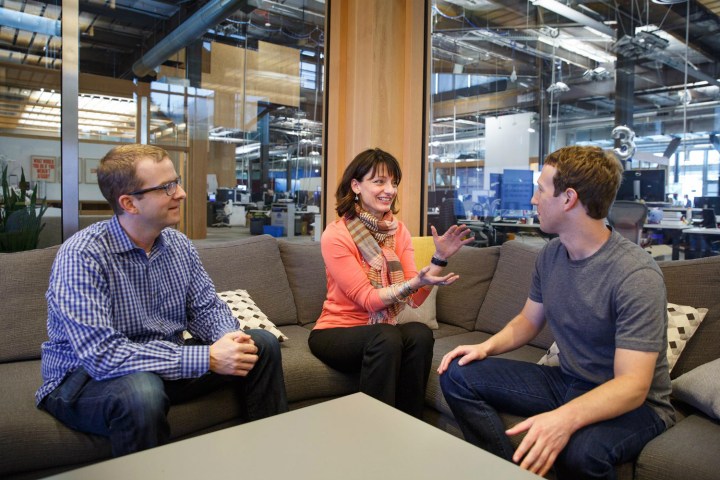
The Bay Area startup creates software to streamline the manufacturing process for gadgets, including 3D-printed hardware. “Our technology allows developers to go from concept to product in just weeks, much faster and less expensive than traditional methods,” states the company on its website.
“Nascent Objects … [is] joining Facebook to work with us in Building 8. Together, we hope to create hardware at a speed that’s more like software,”wrote Dugan in her Facebook post regarding the buyout, which also included a short video clip of what Nascent Objects does.
Facebook hired Dugan to lead its new R&D hardware lab in April. At the time, the former DARPA director gave precious few details in regard to Building 8. Then in August, Facebook unveiled the first glimpse inside its huge Area 404 hardware manufacturing space, where members of Building 8 collaborate on new projects with its Connectivity Lab, Oculus, and infrastructure teams.
Nascent Objects founder and CEO Baback Elmieh, along with other “key members” of the startup will join Facebook as a result of the acquisition, reports Recode. Like Dugan, Elmieh previously served at Google’s Advanced Technology and Projects Group (ATAP). Both Nascent Objects and Google ATAP are known for creating modular products — the latter initially worked on the Project Ara modular smartphone, which Google has now indefinitely shelved.
Having already built a “highly modular” hardware device in the form of its OpenCellular internet-serving platform, Facebook could be planning to build more modular connectivity products with the aid of Nascent Objects. The startup could also help speed-up the company’s global connectivity plans, which have suffered a number of setbacks, by fast-tracking the development process.


